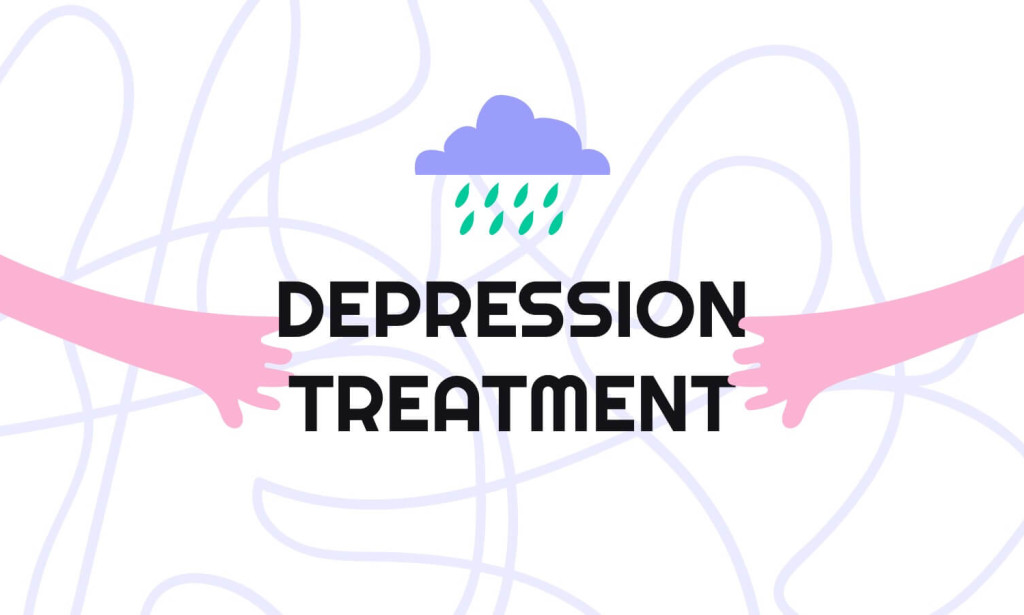What is Depression?
Depression is a serious mental health condition characterized by persistent feelings of sadness, hopelessness, and a lack of interest or pleasure in activities once enjoyed. It is more than just a passing feeling of sadness, as it can significantly impact a person’s daily life, relationships, and overall well-being. Depression can vary in severity, but in all forms, it can be debilitating without proper treatment.
Common Symptoms of Depression:
- Persistent feelings of sadness, anxiety, or a "blank" mood
- Loss of interest or pleasure in activities once enjoyed
- Feelings of hopelessness or negativity
- Irritability
- Changes in appetite or weight
- Sleep disturbances (insomnia or oversleeping)
- Fatigue or lack of energy
- Difficulty concentrating or making decisions
- Feelings of worthlessness or guilt
- Thoughts of death or suicide
Types of Depression:
-
Major Depressive Disorder (MDD)
The most common form of depression, characterized by constant feelings of sadness and a lack of interest in daily activities. Symptoms interfere with regular functioning. -
Persistent Depressive Disorder (Dysthymia)
A chronic form of depression lasting for two years or longer. While symptoms may be less severe than MDD, they are more prolonged. -
Bipolar Disorder (Manic-Depressive Illness)
Involves alternating cycles of depression and manic or hypomanic episodes. Manic episodes are marked by an elevated mood, increased energy, and impulsive behavior. -
Seasonal Affective Disorder (SAD)
A type of depression that occurs seasonally, often in the winter months when natural sunlight exposure is limited. It is thought to be related to changes in sunlight and circadian rhythms.
Postpartum Depression
Experienced by some women after childbirth, characterized by feelings of extreme sadness, anxiety, and fatigue.
Causes of Depression:
-
Biological Factors
Imbalances in neurotransmitters, genetic factors, and changes in brain structure can contribute to depression. -
Psychological Factors
Personality traits like low self-esteem, a history of trauma, or negative thinking patterns can increase the risk of depression. -
Environmental Factors
Stressful life events such as the loss of a loved one, financial difficulties, or relationship problems can trigger depression. -
Medical Conditions
Certain health conditions, such as chronic illness, hormonal changes, or neurological disorders, can also contribute to depression.
Treatment Options:
-
Psychotherapy (Counseling)
Cognitive-behavioral therapy (CBT), interpersonal therapy (IPT), and other forms of counseling can be highly effective in treating depression. -
Medications
Antidepressants, such as selective serotonin reuptake inhibitors (SSRIs) and serotonin-norepinephrine reuptake inhibitors (SNRIs), may be prescribed by a healthcare professional. -
Electroconvulsive Therapy (ECT)
In severe cases, especially when other treatments have been ineffective, ECT may be considered as an option.
Lifestyle Changes
Regular exercise, a balanced diet, sufficient sleep, and stress management techniques can all contribute to improved mood and overall well-being.:max_bytes(150000):strip_icc()/treatments-for-depression-1065502-b0d9977b90cd4827a9bb1f3fbd047afb.png)
Conclusion:
Depression is a treatable condition, and seeking professional help is crucial for effective management and recovery. If you or someone you know is struggling with depression, reaching out to a mental health professional or healthcare provider is an important first step toward healing.



You must be logged in to post a comment.